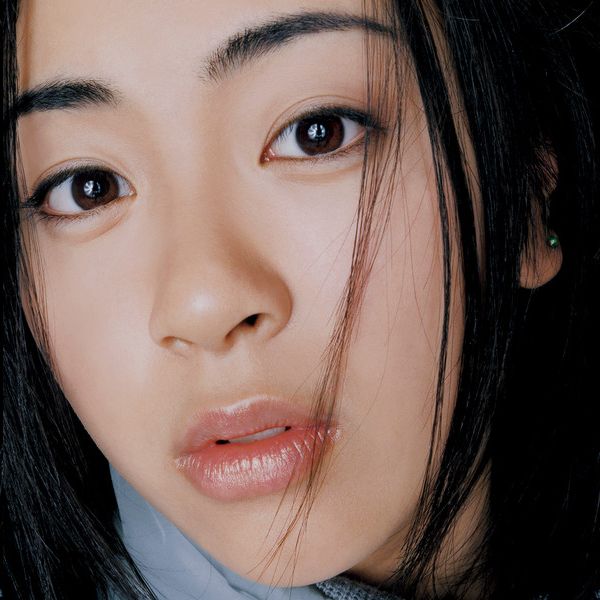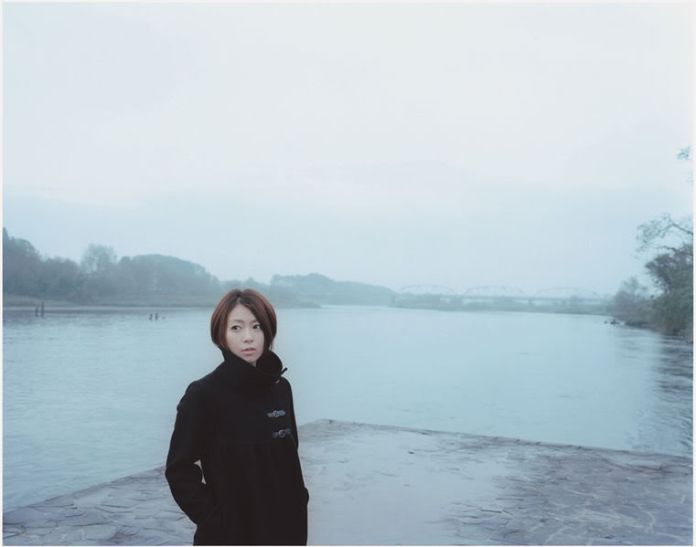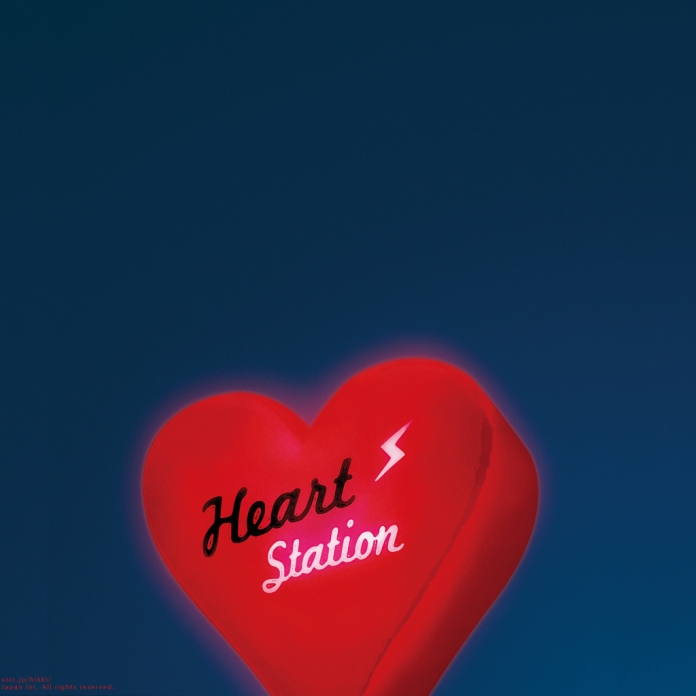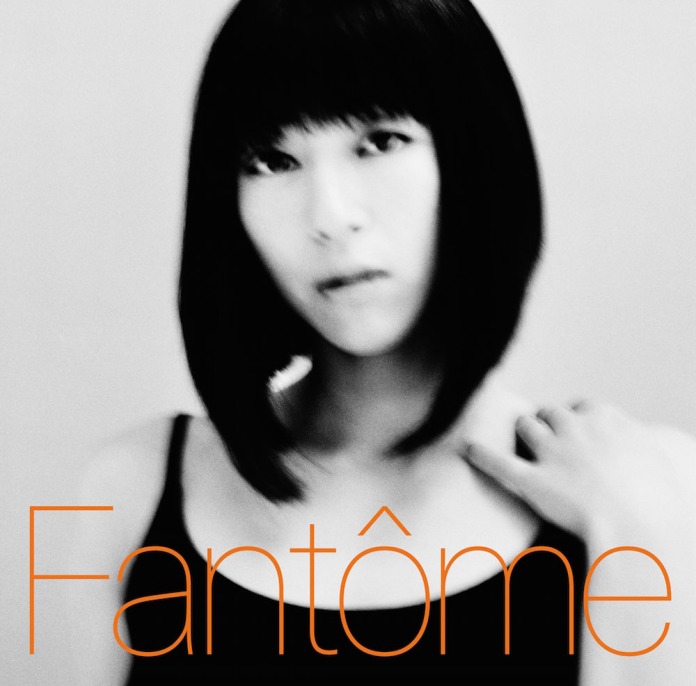
The final image of Utada Hikaru’s traveling video was of her, in a pixie bright red wig, sleeping peacefully alone surrounded by flowers. The smash hit from her transcendent third album, Deep River, was one of her most upbeat songs, but the now-iconic video, which saw her party and dance with a squad of imaginary friends, ended with particularly somber visuals. In a way, that last image encapsulates Utada’s pop music career, in that there has always been an air of melancholy in all of her work, even at its happiest. In the sublime beach jam Tomodachi (Friends), one of the catchier offerings from Fantôme, Utada sings about an unrequited love for a close friend, casually alluding to a morbid line, “I will take this secret to my grave.” Pathos is her art.
Fantôme is Utada’s first studio album released after the self-imposed 6-year-long hiatus, during which she lost her mother, found love, and became a mother. The tragic loss of Utada’s mother, the famed country singer Fuji Keiko, to an apparent suicide plays the album’s most vital part, resulting in her most personal, cathartic work to date. With Fantôme – French for “ghost,” Utada takes the concept of the word and the juxtaposition between light and darkness to another level by segmenting the album into the element of “life” and “death.” Every track switches between the elements as it transitions to the next until reaching the conclusion – the heartbreakingly prophetic 2012 single Sakura Nagashi (Cherry Blossom Flowing), a slow-burn ballad that ends the album on a highly emotional note.
Kicking off the album with the element of “death,” the anthemic Michi (Road) is a classic Utada upbeat number, layering chirpy keyboards and four-on-the-floor beat with bittersweet lyrics about how she has come to terms with her mother’s death that would likely stop listeners in their track on the dancefloor. “This time, I only wanted to line up the most crucial Japanese words, and only sing lyrics that I felt were beautiful,” says Utada of the production of the album. And the delicate use of Japanese language and music is most evident in her dual singles: Hanataba Wo Kimini (A Bouquet to You) and Manatsu No Tooriame (Midsummer Rain Shower). Both written entirely in Japanese, the former is a piece of pop music deconstructed into its purest singing-songwriting form, a melody-driven heartwarming song Brian Wilsons of the world would sit in front of a grand piano in their sprawling mansion and write in the ‘60s, while the latter, positioned as the centerpiece of the album, is a meditated walkthrough of her grieving process, with a twist – gorgeously capping off its conventional ballad composition with speak-sing vocals and muted digital backbeat. Ningyo (Mermaid) sees Utada pay a musical tribute to her late mother by longingly singing the lullaby-like melodies similar to those of Fuji’s work over crystalline harp and live drums. Like encountering the elusive, mystic creature of its namesake, the song offers an experience so visceral yet so surreal it solicits tears.
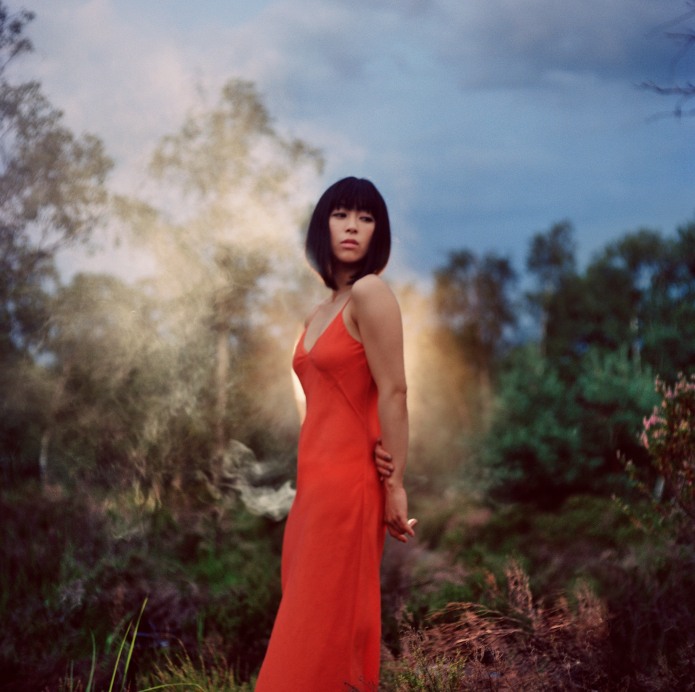
The songs with the element of “life,” compared to the minimalistic instrumentation of “death,” sound relatively scintillating. Everything about Kouya No Ookami (Wolves of the Wilderness), from the campy melodies to horn blasts to sensual breaths that make up the beat, delivers the glorious cheesiness of Japanese pop music from the past decades with aplomb. In Ore No Kanojo (My Girl), the track that perfectly embodies the album’s theme of dualism, Utada explores such an uncomfortable topic like gender politics in Japan’s modern society, digging past the social construct that is put upon the romantic relationship and deep into both the male’s and the female’s true desires. Vocally and musically, there is this bluesy, masculine quality to the song in the beginning that is slowly taken over by the alluring, feminine counterpart in the form of French lyrics and a cloud of strings that lurks and intertwines itself with the song’s fabric until completely cascading down to make one hell of an eargasmic climax. This kind of shapeshifting arrangement is also adopted in Nijikan Dake No Vacance (2-Hour Vacation). The jazzy duet with a fellow Japanese female singer-songwriter, Shiina Ringo, starts off like a morning drowse with the sound of hazy guitar, before hitting the accelerator toward euphoric R&B choruses blossoming with soothing vintage strings. It is the sonic middle ground for both artists’ eclectic aesthetics, and Utada’s husky and Shiina’s porcelain-like vocals balance off of each other beautifully here. This ladies’ brief road trip provides one of the few truly happy moments in Fantôme.
True to that song’s last line, “Fun is best off in small doses,” good time is fleeting in Fantôme. Utada lets the element of “death” fully take over in Boukyaku (Oblivion), a sonic equivalent of purgatory. The currents of pitch-black synths and piano notes that appear and disappear seemingly at random create an eerie effect that makes it feel like the song comes from a whole other plane of existence. Japanese rapper KOHH spits alcohol-laden rhymes — about old memories and impending funeral — like he is on the verge of vomiting, while Utada envelops his verses with her icy vocals that grow more and more heated until matching his cadence in the end, delivering the album’s bleakest line, “When I die someday, empty-handed would be best.” Before it transitions to the feverishly optimistic penultimate track Jinsei Saikou No Hi (The Best Day of My Life), the dark tribal beat shifts into subtle throbs of heartbeat, as if she was shaken back to life. It is exactly the kind of stark contrast that breathes life into her work that Utada has always thrived on.
“I really don’t think I’ll be able to make an album like this again,” Utada says when asked how she feels about Fantôme. The statement might stem from the fact that she feels a strong sense of confidence, which manifests itself through the stripped-down production that shows off her never-better vocal performance, or from the fact that she simply is emotionally exhausted making it. Either way, Fantôme is both the record that sets her on a new artistic path and the culmination of her mastery in juxtaposition — raw yet refined, devastating yet therapeutic, mournful yet full of life. Pathos is her art, and she is in complete control of it.
